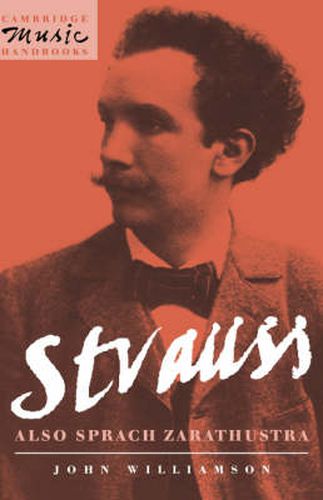Readings Newsletter
Become a Readings Member to make your shopping experience even easier.
Sign in or sign up for free!
You’re not far away from qualifying for FREE standard shipping within Australia
You’ve qualified for FREE standard shipping within Australia
The cart is loading…






Richard Strauss’s tone poem Also sprach Zarathustra is one of his most controversial works. Its greatest popularity has been achieved in recent years when its connection with Nietzsche’s book of the same name has seemed less relevant than its associations with Kubrick’s film 2001 - A Space Odyssey. Although its early critical reception was mixed, it is nowadays one of the staples of the virtuoso orchestra, and a standard demonstration piece for innovations in recording technique. Its opening bars have become a kind of icon independent of the rest of the work. This guide examines the intellectual background of the work and considers ways in which it has been received by composers and writers, notably Romain Rolland and Bartok. It also discusses the musical background of Liszt and Wagner which gave rise to the genre, ‘tone poem’, and provides an analysis of several aspects of Strauss’s musical language.
$9.00 standard shipping within Australia
FREE standard shipping within Australia for orders over $100.00
Express & International shipping calculated at checkout
Richard Strauss’s tone poem Also sprach Zarathustra is one of his most controversial works. Its greatest popularity has been achieved in recent years when its connection with Nietzsche’s book of the same name has seemed less relevant than its associations with Kubrick’s film 2001 - A Space Odyssey. Although its early critical reception was mixed, it is nowadays one of the staples of the virtuoso orchestra, and a standard demonstration piece for innovations in recording technique. Its opening bars have become a kind of icon independent of the rest of the work. This guide examines the intellectual background of the work and considers ways in which it has been received by composers and writers, notably Romain Rolland and Bartok. It also discusses the musical background of Liszt and Wagner which gave rise to the genre, ‘tone poem’, and provides an analysis of several aspects of Strauss’s musical language.